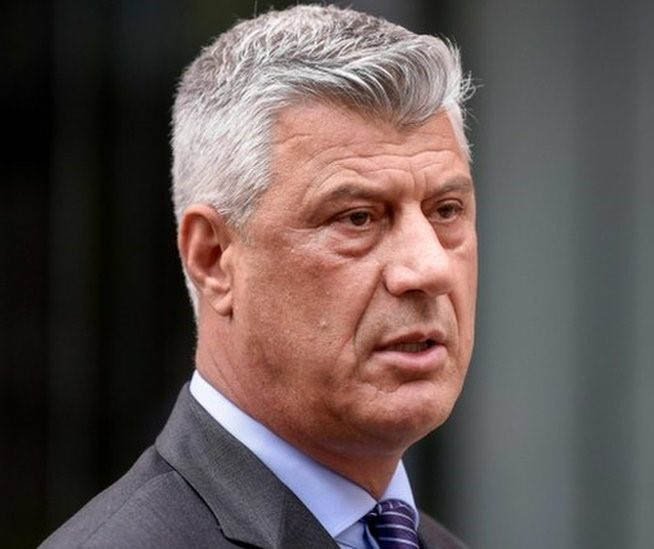PRISTINA, (Reuters) – Former Kosovo President Hashim Thaci, a wartime hero turned politician, was arrested and transferred to the detention centre of the Kosovo Tribunal in The Hague, the Netherlands, yesterday to face charges of war crimes.
Thaci had resigned with immediate effect earlier in the day after learning that the tribunal had confirmed a war crimes indictment against him.
Thaci and three other former leaders of the Kosovo Liberation Army (KLA) are accused of overseeing illegal detention facilities where the movement’s opponents were kept in inhumane conditions, tortured and sometimes killed.
Thaci has repeatedly denied any wrongdoing. He told a news conference in the Kosovo capital Pristina that he felt his resignation was necessary “to protect the integrity of the state”.
Thaci arrived at Pristina’s military airport in the afternoon and was flown to The Hague, where he was taken into custody by the Kosovo Specialist Chambers.
The move could bring political instability to Kosovo, a young democracy where the 52-year-old former guerrilla became the first prime minister in 2008 and was elected president in 2016.
Prosecutors in July said they hold Thaci responsible for nearly 100 murders of civilians during the 1998-99 war when he was a KLA commander who fought the Serbian police and army.
Thaci, a U.S.-backed national hero, embarked on his political career after leading the KLA’s battle against forces under late Serbian President Slobodan Milosevic.
Ties with the administration of U.S. President Donald Trump deepened in September, when Kosovo and Serbia signed an economic relations deal at the White House.
The European Union on Thursday welcomed Thaci’s cooperation with the Kosovo Specialist Chambers, where he is expected to come before a pre-trial judge in coming days.
The tribunal was set up in 2015 to handle cases relating to the war that led to Kosovo’s independence from Serbia a decade later in 2008. The court is governed by Kosovo law but staffed by international judges and prosecutors.






